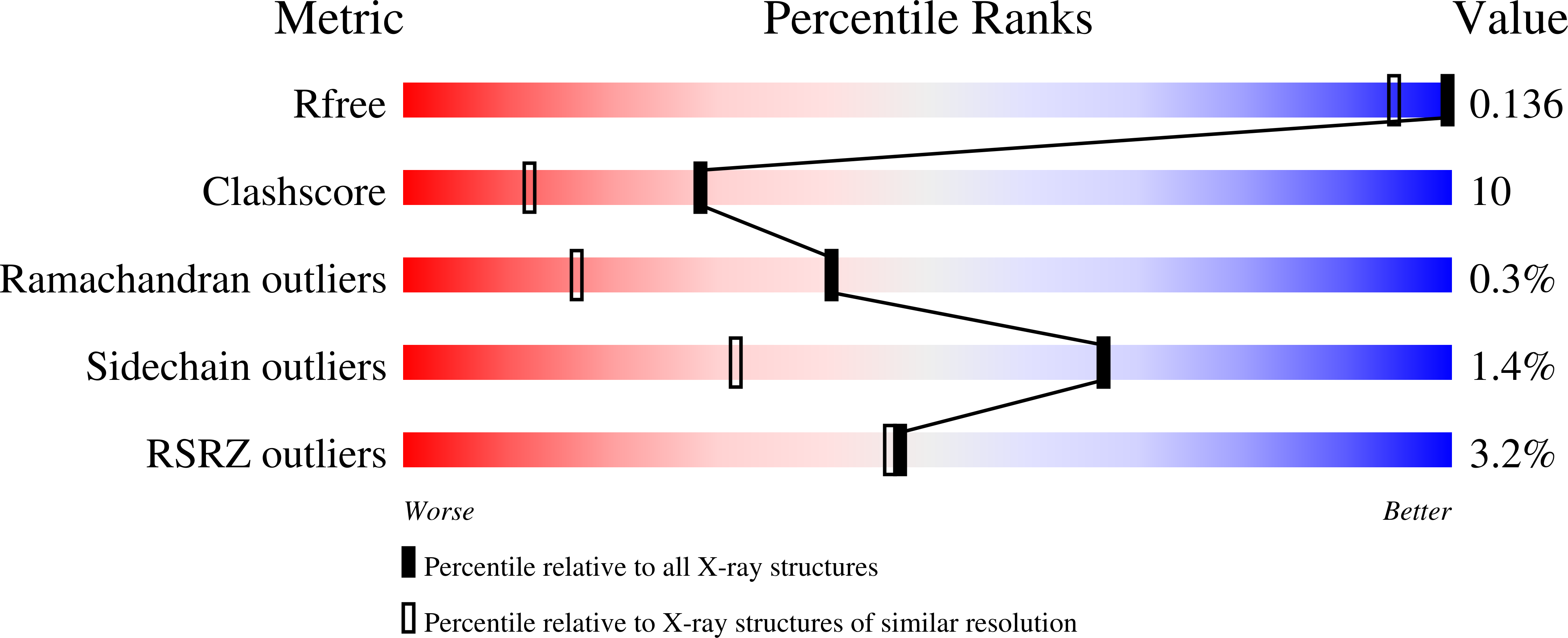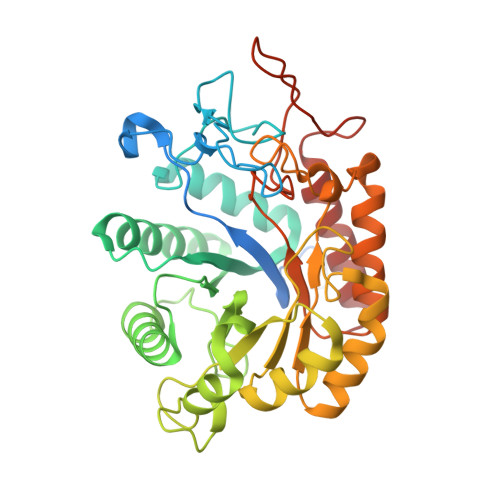Structural and Kinetic Dissection of the Endo-Alpha-1,2-Mannanase Activity of Bacterial Gh99 Glycoside Hydrolases from Bacteroides Spp.
Hakki, Z., Thompson, A.J., Bellmaine, S., Speciale, G., Davies, G.J., Williams, S.J.(2015) Chemistry 21: 1966
- PubMed: 25487964
- DOI: https://doi.org/10.1002/chem.201405539
- Primary Citation of Related Structures:
4V27, 4V28 - PubMed Abstract:
Glycoside hydrolase family 99 (GH99) was created to categorize sequence-related glycosidases possessing endo-α-mannosidase activity: the cleavage of mannosidic linkages within eukaryotic N-glycan precursors (Glc1-3 Man9 GlcNAc2 ), releasing mono-, di- and triglucosylated-mannose (Glc1-3 -1,3-Man). GH99 family members have recently been implicated in the ability of Bacteroides spp., present within the gut microbiota, to metabolize fungal cell wall α-mannans, releasing α-1,3-mannobiose by hydrolysing αMan-1,3-αMan→1,2-αMan-1,2-αMan sequences within branches off the main α-1,6-mannan backbone. We report the development of a series of substrates and inhibitors, which we use to kinetically and structurally characterise this novel endo-α-1,2-mannanase activity of bacterial GH99 enzymes from Bacteroides thetaiotaomicron and xylanisolvens. These data reveal an approximate 5 kJ mol(-1) preference for mannose-configured substrates in the -2 subsite (relative to glucose), which inspired the development of a new inhibitor, α-mannopyranosyl-1,3-isofagomine (ManIFG), the most potent (bacterial) GH99 inhibitor reported to date. X-ray structures of ManIFG or a substrate in complex with wild-type or inactive mutants, respectively, of B. xylanisolvens GH99 reveal the structural basis for binding to D-mannose- rather than D-glucose-configured substrates.
Organizational Affiliation:
School of Chemistry and Bio21 Molecular Science and Biotechnology Institute, University of Melbourne, Parkville, Victoria 3010 (Australia).



















